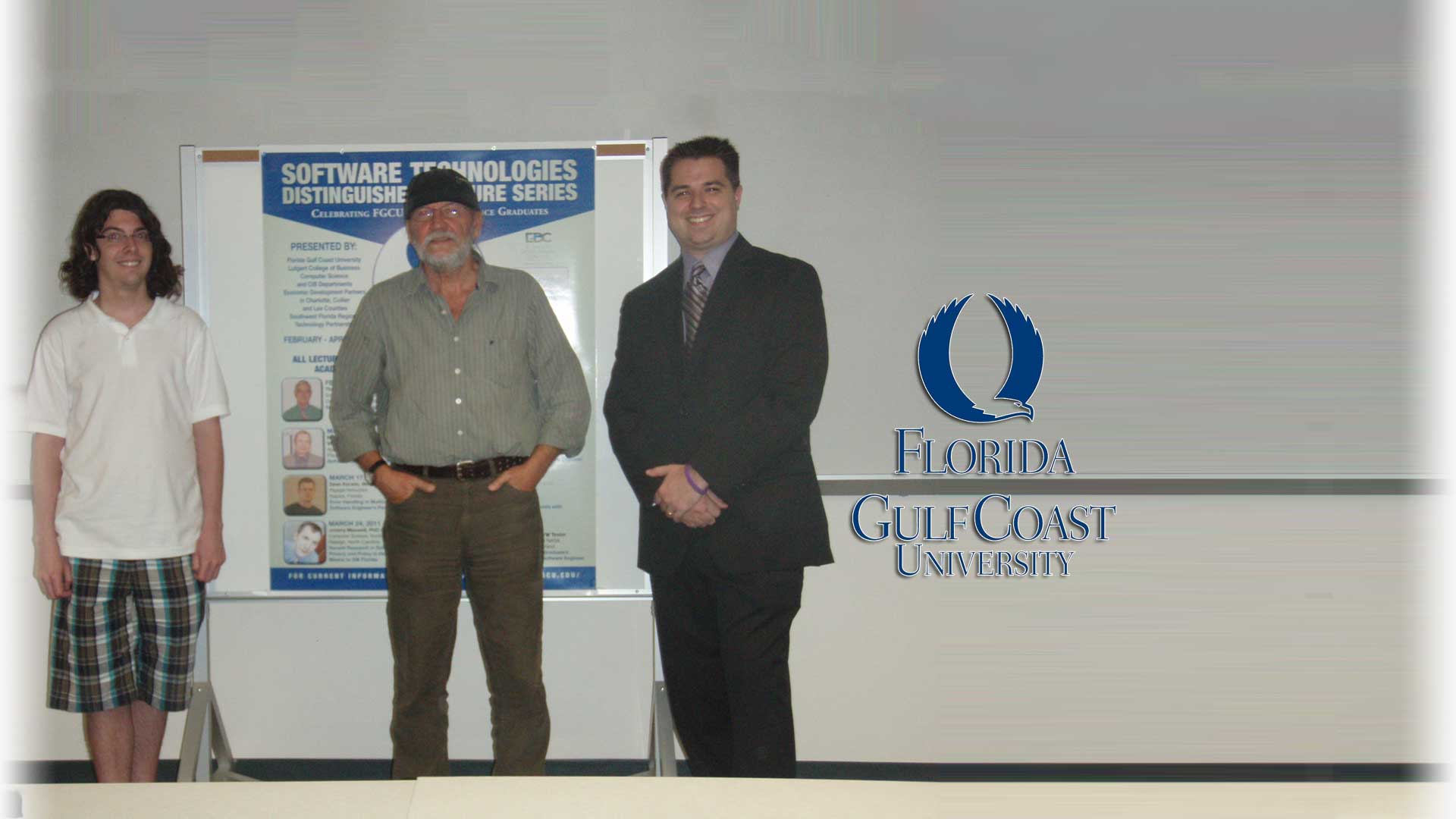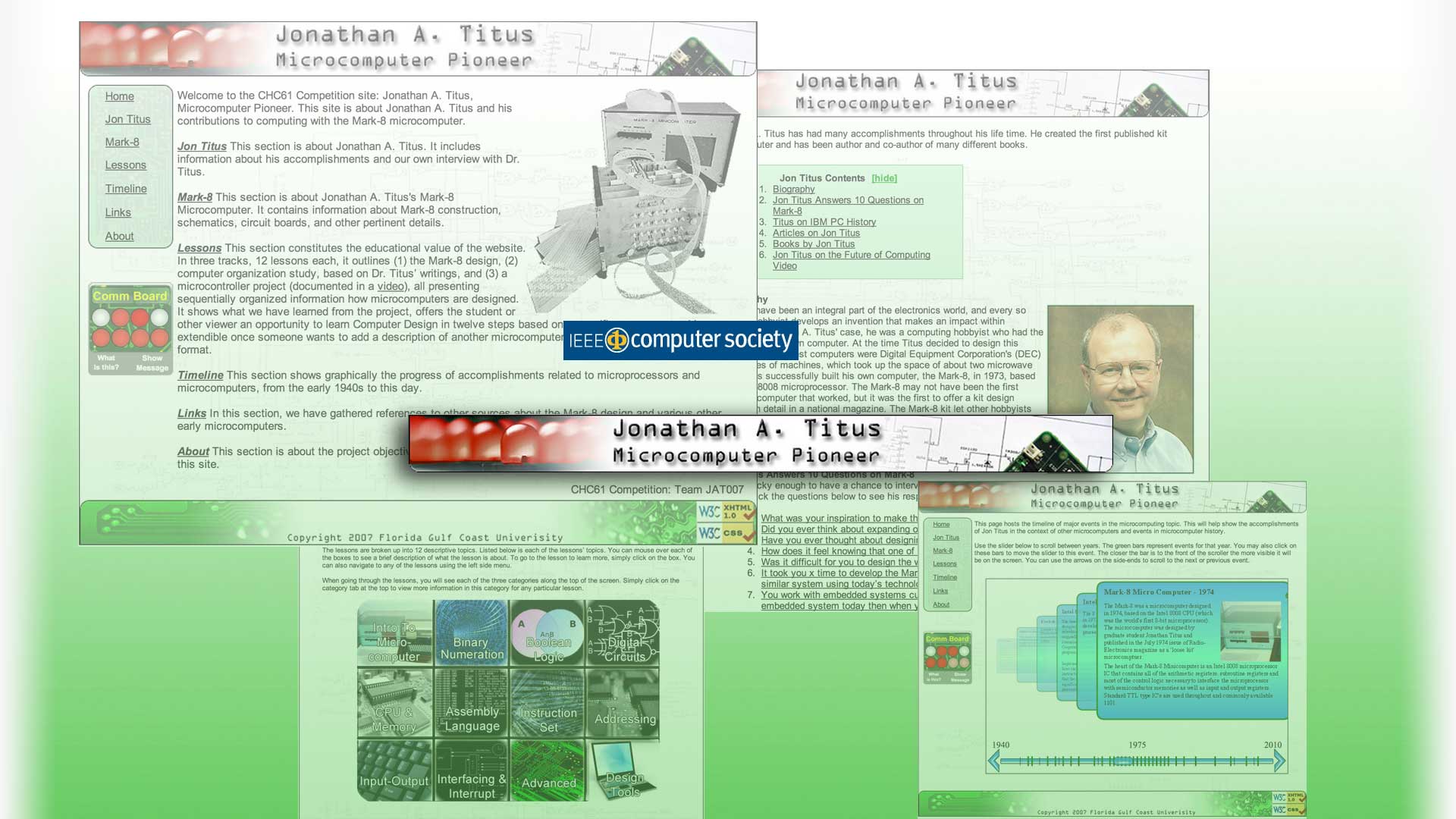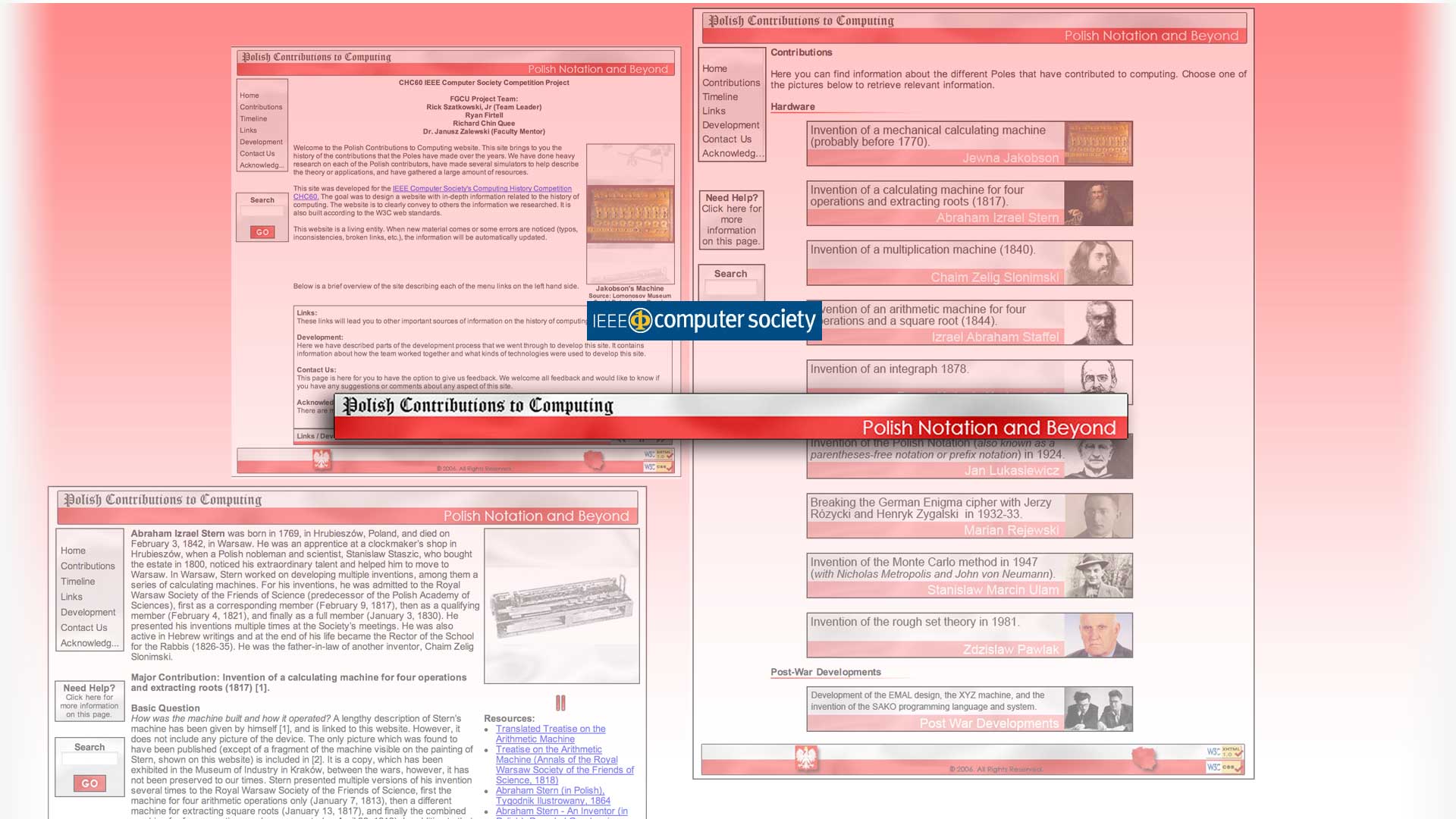
I started my Computer Science degree back in 2003 at FGCU. Over my 4 years I experienced a lot and made several different accomplishments. Since graduating I have also been a guest lecture for several classes. As well I have had the privilege of presenting for the Software Technologies Distinguished Lecture Series.

Web technologies and web frameworks are becoming increasingly popular amongst businesses today. They allow software companies to provide expanded access to software that was previously distributed only as local applications. Furthermore, businesses are looking for ways to cut costs and increase employee productivity. These technologies allow the programmers to define high-level descriptions of the program, which decreases the amount of development resources needed. In this talk, we will describe the importance of web technologies and the use of frameworks to increase productivity. We will discuss the growing needs for businesses today and how to help align the educational goals to fill these evolving needs.

CHC61 encouraged teams of four undergraduate students to work together as a team to design, research, and implement a high-quality website. With a theme of “Unsung Heroes”, the aim of the competition was to make students aware of the rich and exciting history of the computer as well as stress the importance of transferable skills such as time management and the division of a major task among a group of people.
Each of the four team members had a different focus. As the team leader, my focus was the actual website development: access to technologies, website design and implementation, testing according to requirements of the competition and meeting the W3C standards, and organization of the team’s work. The second team member focused on developing the flash media: what features should be implemented, how to best illustrate the concepts, and how to do efficient implementation. The third and fourth team members focused on designing the Lessons and working on the development of the microcontroller case study. Thus, each member took one aspect of the site to build, although we all interacted in accomplishing individual tasks. During the meetings, each member would present the research findings and development accomplishments that we had assigned from the past week. To make sure we would stay on task, we developed documents for the competition requirements, design decisions, and testing procedures. In the final stages, as a team, we focused on integration, so that each team member's section would fit well with the site.
Pinnacle Magazine: Masters of the Web universe (page 28)
Competition: IEEE Computer Society 61th Anniversary History Competition Winners

CHC60 encouraged teams of four undergraduate students to work together as a team to design, research, and implement a high-quality website. The aim of the competition was to make students aware of the rich and exciting history of the computer as well as stress the importance of transferable skills such as time management and the division of a major task among a group of people. The competition is part of a series of events throughout 2006 to celebrate the IEEE Computer Society’s 60th anniversary.
We chose a topic on the history of Polish Contributions to Computing, and developed a site that conveys the depth of the information that we have researched and gathered. Our team has gained a lot of experience from developing this site for the competition.
Each of the three team members had a different focus. As team leader, my focus was the actual website development: access to technologies, website design and implementation, testing according to requirements of the competition and meeting the W3C standards, and organization of the team’s work. The second team member focused on developing the simulators: what features should be implemented, how to best illustrate the concepts, and how to do efficient implementation. The third team member focused on retrieving the historical data: searching databases for information on Polish contributions, contacting the university library to obtain respective articles, and approaching publishers to grant permission to publish material on the website. Thus, each member took one aspect of the site to build, although we all interacted in accomplishing individual tasks. During the meetings, each member would present the research findings and development accomplishments that we had assigned from the past week. To make sure we would stay on task, we developed documents for the competition requirements, design decisions, and testing procedures. In the final stages, as a team, we focused on integration, so that each team member's section would fit well with the site.
Press Release: FGCU Students Make Finals at the IEEE Computer Society's History Competition
Competition: IEEE Computer Society 60th Anniversary History Competition Winners